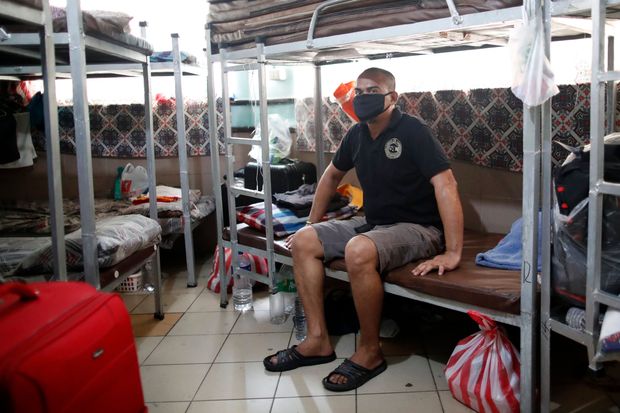RIO DE JANEIRO, BRAZIL – Tejasvi Duseja can no longer bear it: the last time this Indian sailor set foot on land was five months ago. The coronavirus is to blame, which prevents the rotation of crews and condemns over 200,000 sailors to endless confinement in the planet’s oceans.

All of them, whether engineers on freighters, waiters on luxury cruise liners, or cooks on rafts, have been waiting for months to return to their countries.
They are experiencing a situation that the UN considers a humanitarian crisis and that would have already caused several suicides.
Many have been trapped on ships where they worked because border restrictions prevent the arrival of personnel to replace them.
“Psychologically, I can’t take it anymore, but I must remain strong because I have no other choice,” Duseja told AFP in June via WhatsApp, from the Indian freighter on which he works, now in Malaysian waters.
Duseja, one of 30,000 Indian sailors trapped on a ship, had extended his contract a few months before the pandemic spread.
The sailors usually work six to eight months on board before being replaced. Covid-19 disrupted this arrangement, causing chaos in international travel.
“Currently, there are over 200,000 sailors trapped at sea who have already exceeded the term of their contracts,” said Guy Platten, secretary-general of the International Chamber of Merchant Marine (ICS).
The situation is so serious that a dozen countries vowed in July, during the international maritime summit in Great Britain, to recognize the profession as “essential” to allow these maritime workers to return home.
Cherokee Capajo, a 31-year-old Filipino luxury cruise ship technician, has spent months at sea, prevented to dock due to restrictions imposed by the coronavirus.
He had barely heard of Covid-19 when he boarded the Carnival Ecstasy in January in Florida. He did not have to wait long to see several Carnival company ships stopped due to the outbreak of the virus on board.
‘The worst maritime experience’
Passengers of the Ecstasy docked at the American port of Jacksonville on March 14th, but Cherokee Capajo and his crew members were forced to remain on board for seven weeks.
On May 2nd, the ship set sail for the Bahamas, where its 1,200 crew members were transferred to another ship, which took them to Jakarta and then to Manila, where they arrived on June 29th.
Upon landing, the only thing Capajo wanted was “to kiss the dry land”.
“Maybe that was my worst maritime experience,” he told AFP this week via Messenger, as he went through a second quarantine near the city where he lives in the central Philippines.
About a quarter of sailors are Filipinos. According to the Philippine authorities, some 80,000 are trapped at sea.
A Filipino died in May following self-mutilation aboard the Scarlet Lady, anchored off the coast of Florida, according to the United States Coast Guard.
Shipowners expressed concern in a letter to UN Secretary-General Antonio Guterres in which they wrote last month that some sailors had been trapped on their ships for 15 months when the maritime convention limits boarding to a maximum of 12 months.
Source: AFP

